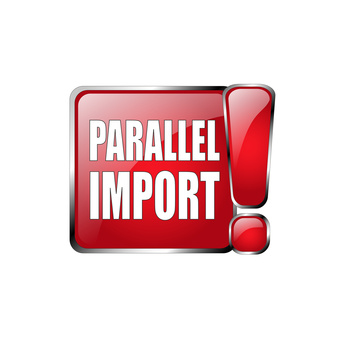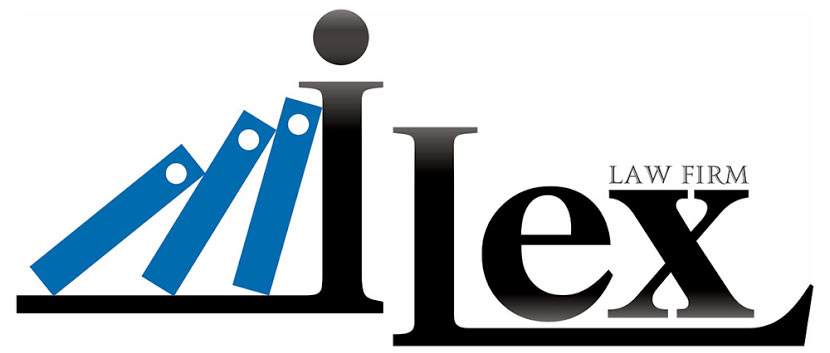Parallel import will be prohibited in Armenia.
Will it arise from citizens' rights or will businesses benefit from it? As it is probably most likely known, up to today, the principle of international exhaustion of trademarks rights operates in the Republic of Armenia, by virtue of which the holder of a registered trademark has no right to prohibit the use by the third party of the trademark of the goods which have been placed in the economic circulation by holder or under his consent.
"Parallel import" is not a term defined by law. It has been put into practice in practice simultaneously with the concept of exclusive rights in the field of intellectual  property. Basically, cases of parallel imports include trademarks, but may also include other intellectual property rights. That means, parallel import is permitted by law or, more precisely, any product that acquired in any country, regardless whether the trademark holder thinks about the location or conditions of its future realization/ wants to limit its future sale in any country/, it can be freely imported into the territory of the Republic of Armenia, as it has been put into circulation in any country and it is assumed that the holder has already given his consent for its free circulation. The holder has sold the appropriate product and therefore cannot prohibit its subsequent sale, as the rights are considered to be exhausted from the moment of its first sale.
property. Basically, cases of parallel imports include trademarks, but may also include other intellectual property rights. That means, parallel import is permitted by law or, more precisely, any product that acquired in any country, regardless whether the trademark holder thinks about the location or conditions of its future realization/ wants to limit its future sale in any country/, it can be freely imported into the territory of the Republic of Armenia, as it has been put into circulation in any country and it is assumed that the holder has already given his consent for its free circulation. The holder has sold the appropriate product and therefore cannot prohibit its subsequent sale, as the rights are considered to be exhausted from the moment of its first sale.
The term “exhaustion of rights” is also used in the legal system of Armenia. Particularly Article 14 of the RA Law on Trademarks states that “The holder of a registered trademark has no right to prohibit the use of trademark of the goods by the third party which have been placed in the economic circulation by the holder or under his consent”
There are two main principles of exhaustion of rights: National / Regional / and International.
According to the principle of international exhaustion, the exhaustion of rights shall take place when the holder has alienated the goods in any country of the world due to which has exhausted its rights and therefore cannot prohibit its further realization: resale in any country of the world, without limitation. /Currently the principle is operating/
Under the national or regional / example EU/ exhaustion, it is assumed that: when the holder alienating goods in any country he/she exhausting rights in a particular country or region and cannot object on its future sale only in that country or region, but may prohibit its import from any other third country. /Modified principle, and the common area will be the territory of the EEU/
Which principle is arising from consumer’s interests? Of course international exhaustion principle, which is the same as having the possibility of parallel import, whereas parallel importers compete with local, official distributors, selling the same products with lower price, especially products with wide range of consumption, such as medicines, food sale in a developing countries (it should be noted that its not anyhow related to counterfeit goods/ trademark is used illegally on goods or on its label or on its packaging are considered as counterfeit). Parallel imports indirectly impose the right holder or official distributor to provide low price in the market as the other parallel importer is a potential competitor and ensures economic competition through the goods importing from other market. The principle of international exhaustion is especially important for countries which are dependent from import. The legitimate justification of the need for the principle of international exhaustion can be illustrated by the fact that the parallel import ban is a non-tariff barrier and contravenes the WTO GATT Agreement.
And maybe the change is favorable for economy (business) entities?
It’s obvious that Armenian economy is dependent from import. As a result of the ban on parallel imports, interests of only one entity will be protected in Armenia, resulting in the exclusive distributor, who will dictate price of the goods in the market, preferably for them. A number of products have been freely imported from third countries, such as the United Arab Emirates, which are competitors for the equivalent expensive products imported from the EU or US territory. From now on, the EU brand holder registering it in the RA Customs Superior Body and later in the Single Customs Register of the Eurasian Economic Union will prohibit all types of imports to the Republic of Armenia. The only exception is that import of the goods without holder’s consent to the territory of RA, will be the import from the territory of EEU.In EEU countries the principle of prohibiting parallel imports or the principle of regional exhaustion of rights is introduced, which will mean that rights of trademark or any other intellectual property object right holder will be exhausted from the moment of first sale in the EEU member country. That means, in case of first sale in the EEU member state, the rights of the holder are considered exhausted and can be subsequently resold in other EEU member states. If previously, the holder had no right to prohibit the importation of legally purchased goods then in the case of the contribution of a regional principle, the right holder may prohibit the import of goods into the territory of the EEU by other persons unless it has been obtained outside the borders of the EEU member states.
Saying in easy way, Import from Russia or another member state of the EEU cannot be restricted in any way, but the issue of allowing imports from other countries is very vague and will be determined at the discretion of the merchant.
Under the contract to join the treaty about the Eurasian Economic Union on 29.05.2014, there is the regional principle of exhaustion of exclusive right to trademark in EEU territory.
It is stated in the 26 annex of treaty that The principle of exhaustion of the exclusive right to a trademark and the trademark of the Union shall be applied on the territories of the Member States, in accordance with which the use of a trademark or the trademark of the Union in relation to goods lawfully put into civil circulation on the territory of any Member State directly by the right holder of the trademark and/or the trademark of the Union or other persons with its consent shall not be regarded as a violation of the exclusive rights to the trademark or the trademark of the Union. That means that the freedom of movement of goods implies that a common principle of law enforcement should be exercised in the territory of the Member States.It is stated in the contract to join the treaty about the Eurasian Economic Union on 29.05.2014 that
65. The provisions of Section V of the Protocol "On the Protection and Enforcement of Intellectual Property Rights" (Annex 26 of the Treaty on the Eurasian Economic Union dated May 29, 2014) shall be applied by the Republic of Armenia after three years from the date of the entry into force of the Treaty.
66. The Republic of Armenia guarantees to take measures to prevent export of goods from the territory of Armenia to the EEU member states without holders consent regarding goods that are imported from the third countries, registered in the uniform customs registry of intellectual property objects of the Customs Union member-states and marked by the trademarks included in the customs registry of intellectual property objects of the country of destination.
67. The Republic of Armenia shall, no later than the date of entry into force of the Treaty, develop and approve normative legal act regulating the export control of goods that are imported from the third countries, registered in the uniform customs registry of intellectual property objects of the Customs Union member-states and marked by the trademarks included in the customs registry of intellectual property objects of the country of destination
68. Within six months after the entry into force of the Treaty, the Republic of Armenia shall arrange and approve a program of measures aimed at adaptation of economic entities to operate under the regional principle of the exclusive right to use trademark in the Republic of Armenia.
On April 13, 2016, the Eurasian Intergovernmental Council adopted an order on drafting the Protocol supplementing the Treaty on the Union with norms, which entrust the Eurasian Intergovernmental Council with the powers to apply exclusions from the application of the principle of exhaustion of the exclusive right to trademarks for certain products.
In case of adoption of such a document "parallel imports" will be permitted for certain products. In the remaining cases, right-holders and distributors will decide on the possibility of allowing parallel imports on their own.In order to prevent importation, the trademark will be registered in the National Customs Register of Intellectual Property Objects.
Significantly, in the same EEU territory the relevant amendments have not yet been completed and there are many questions that have not been answered for ensure the implementation of the principle of regional consumption.
Such an example is the security of a single customs register for Intellectual Property Objects.
State Revenue Committee has released a message that the point 16 of the annex 26 will force from 01.01.2018. Consequently, the use of the trademark by another party without the consent of the holder, including the "parallel import", may be considered as a breach of the exclusive right to the trademark and may result in the respective legal consequences. Based on the above mentioned, it is recommended to the business entities , who transports goods through the customs border, which are registered in the registry of intellectual property objects maintained by a superior customs body, get permission or consent of the right holder to avoid the possible complications.
Vice President of State Revenue Committee of RA, V. Mirumyan, denied the statements made by Ara Abgaryan, head of the State Register of State Intellectual Property Agency of the Ministry of Economic Development and Investments, saying that the ban on the import of cars/ it also may assume other products/ coming into force on January 1, 2018 will not spread to individuals. but what practical problems may arise, it will be clear in the course of 2018.
